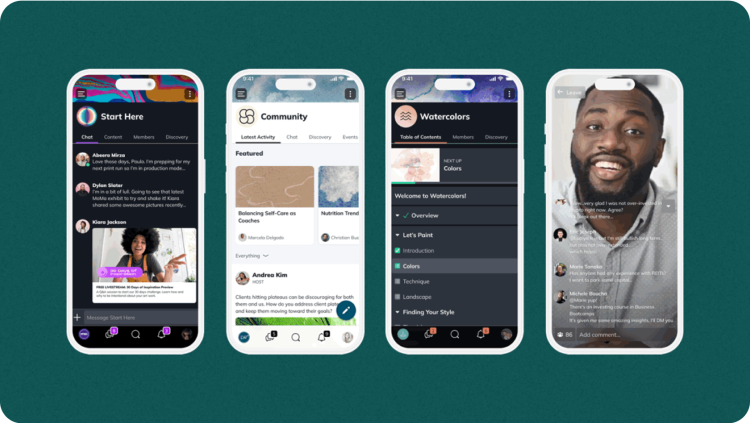Online Courses
The 11 Best LearnWorlds Alternatives (2025 Rankings)
These are the best LearnWorlds alternatives for every type of teacher and course creator.
Author
Mighty Team
Last Updated
September 18, 2025

Table of Contents
LearnWorlds was launched in 2014 and it’s gained a reputation as a solid course platform. However, it’s limited for live courses, communities, and app-experiences.
In this article, we’ll talk about the best LearnWorlds alternatives. There’s something here for every type of teacher and course creator. We’ll cover:
What’s good about LearnWorlds
Why look for a LearnWorlds alternative
The 11 best alternatives to LearnWorlds
Try the best LearnWorlds alternative free for 14 days!
What’s great about LearnWorlds
A SCORM-compliant LMS with solid tools for building and delivering courses (e.g. dripping content, AI enhancements, custom learning paths for different learners).
Interactive video platform that can add transcripts, interactive points in the video for learners, and tables of contents.
Course website builder with 400+ templates, a drag-and-drop editor, and custom code option
Integrated marketing with affiliate programs and pre-set funnels.
Why you need a LearnWorlds alternative
The LearnWorlds community feature is basic, and missing vital course engagement tools like livestreaming and native live events–even the Zoom integration is bare bones (missing Zoom’s features).
Without livestreaming, LearnWorlds isn’t good for live teaching (cohort courses).
It’s missing features for organizing content like hashtags and tagging, and you can’t provide admin privileges to other teachers/moderators.
There’s no native LearnWorlds app included–you need to pay extra for a white-label app.
Users report that LearnWorlds apps are buggy with comments and photos disappearing.
LearnWorlds Alternatives (Quick Comparison)
Best For | Best Features | Price | |
|---|---|---|---|
Live and async courses with unrivaled engagement | Community platform, people magic, member engagement | From $109/mo | |
Premium branded course apps | Launch, migration, and branding support, dedicated strategists. | More Info | |
Async courses with complex funnels | LMS course builder, pre-made marketing funnels | $149/mo | |
Institutional learning and interoperability | LMS, exam builder, white-label apps | Not available publicly | |
Websites and async courses | Drag-and-drop course builder & AI exams | $99/mo | |
Low-cost async courses | Huge marketplace with millions of students | Udemy takes up to 67% of revenue | |
Complex websites with simple courses | Website builder | 10% of your revenue | |
WordPress plugin | Familiar Gutenburg-like editor | $139/year + WordPress hosting | |
Cohort course marketplace | Live learning from hand-picked instructors | 10% of your earnings | |
Asynchronous courses | Pay instructors and build course sites | 1$/transaction + 10% transaction fee | |
Institutional LMS | Tons of customization and integration options for institutional uses | Open source |
*Each option has different plans. Prices shown here are for comparable features to LearnWorlds. See the entries for more complete pricing.
Best LearnWorlds Alternatives
1. Mighty Networks
Best for live and async courses with unrivaled engagement
Mighty Networks seamlessly delivers both async and synchronous courses, giving you the capacity of LearnWorlds plus the native livestreaming and engagement features LearnWorlds is missing.
A course in Mighty is delivered in a Space. Spaces can include any features you want, meaning you can build the learning experience your students really need. Toggle Chat, Activity Feed, People Explorer (member list), LMS, Discovery, Events Section, a Single Event, a Page, or Highlighted Hashtags.

Whether you want a livestreamed course with a support chat that continues in between, or your course follows an async Table of Contents with an in-person or virtual conference at the end, you can do that.
The course platform has:
Intuitive course-building: video, text, audio, PDFs, etc. in a community engine with quizzes, assignments, questions and discussions in course modules, posts, and comments–the engagement tools to let members cheer each other on.
Flexible course Spaces integrate features of community and courses together that skyrocket success rates: virtual events, live conferences, livestreaming, chat, and messaging.
Automated AI admin to generate landing pages, course outlines, and create and post discussion questions.
Integrations: Native Zoom and ConvertKit integrations, and 2,000+ software embeds to add tools like Calendly, Dropbox, Loom, or Spotify.

Mighty Networks also puts course experiences in G2’s top-rated community platform.
This includes a community engine designed to introduce members to each other. Members are prompted to create profiles (AI can help!), and Mighty will surface others with similar interests, show them things in common, and even automatically introduce them.
Scale your course business, bundling course sales with communities, memberships, masterminds, coaching, events, and conferences. Sell in 135 different currencies or even monetize with token gating.
Build and customize Mighty under your own brand, creating a course and community identity with customized landing pages, white-labeled emails, custom profile fields, light and dark mode, custom urls, and member tags and badges.
Add in custom automations and member workflows, gamification features and badges.
Awesome Mighty Networks app on every plan; it’s well-rated and available in the App Store and Google Play Store. And for established creators, Mighty offers branded community apps with Mighty Pro.
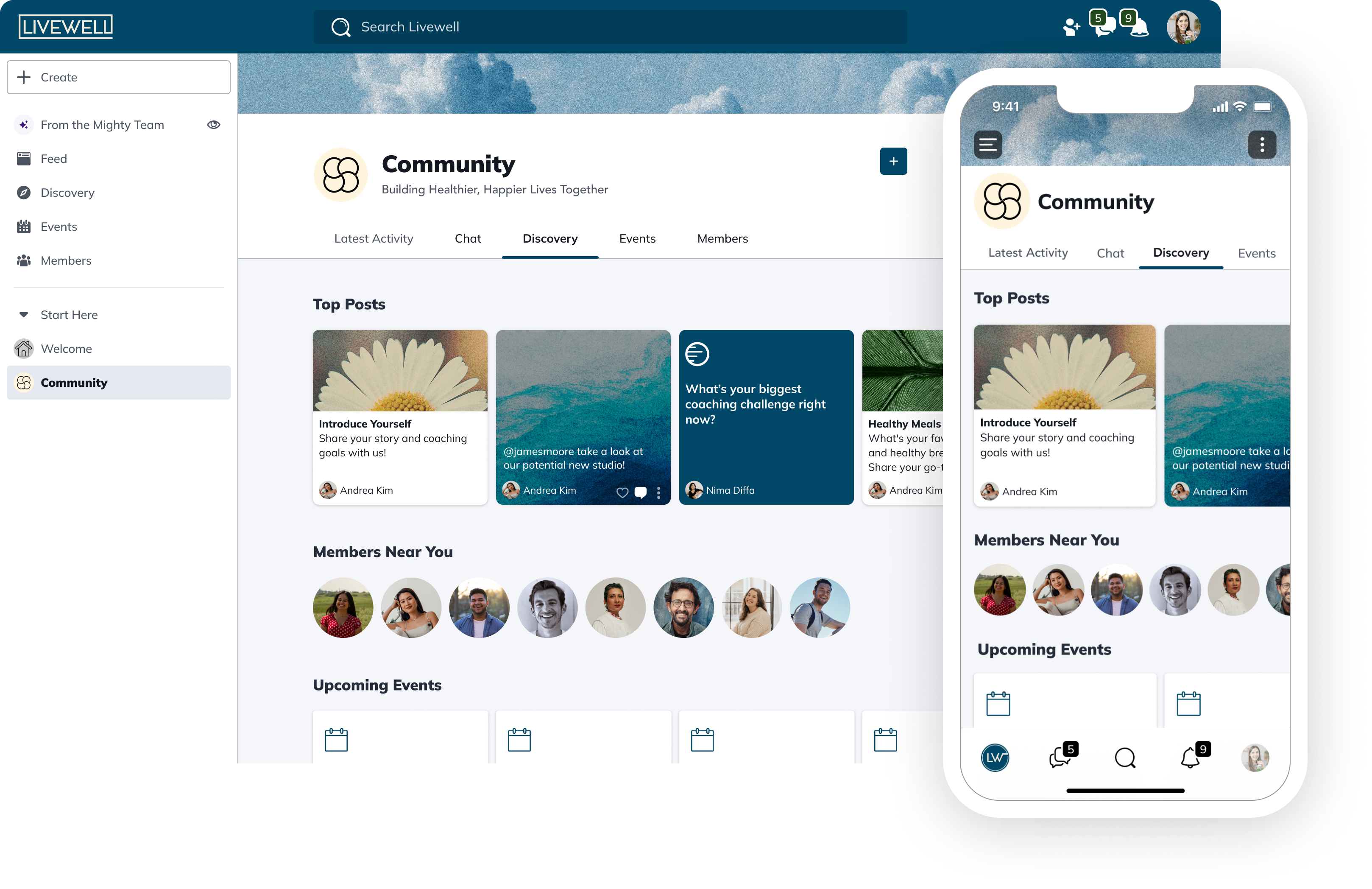
How Mighty Networks compares to LearnWorlds
Here’s what you get with a Mighty Network vs. LearnWorlds:
Delivers live and async courses (or teach live and sell the recording after) in custom Spaces with features you can toggle on or off.
Better engagement and community features like native livestreaming, discussion forums, chat & messaging, and virtual events (G2’s top-rated community platform).
Member engagement with people magic software to help members complete courses and make friends
Premium community analytics for every Space showing data like retention, use, completion, and revenue.
More growth power with unlimited admins and moderators, member tags and badges.
Mighty Networks app included with every plan and branded apps for established creators.

Pricing
Courses Plan - $109/mo
Business Plan - $179/mo
Path-to-Pro - $360/mo
2. Mighty Pro
Best for courses and community on premium branded apps

Mighty Pro brings Mighty Networks courses and community features and builds them into premium branded apps.
Having built 400+ premium course and community apps for names like Tony Robbins, Jim Kwik, Marie Forleo, Mel Robbins, Matthew Hussey, TED, and The School Kit Squad, Mighty Pro delivers the best branded apps on the market.

Mighty Pro apps come with
All the features of a Mighty Network, with LMS for pre-recorded or live courses, livestreaming, events, discussions, chat & messaging, and people magic to boost community engagement.
App design, splash screens, branded notifications, proactive app updates and submissions (App Store & Google Play Store), and support.
Access to the Mighty Pro Membership Network.
Mighty Pro is currently offered in 2 ways: We Do It For You or We Do It With You.
How Mighty Pro compares to LearnWorlds
Mighty Pro works with and for you to build premium, responsive, course apps, which can include migration and branding.
All Mighty Networks’ best-in-class features on your own brand.
Pricing
3. Kajabi
Best for async courses and marketing funnels
Kajabi is a popular platform for asynchronous courses, with a powerful set of course marketing features built-in. It includes a solid LMS with course authoring and flexible content creation, with the ability to drip content, add assessments and quizzes, and learn from insights. Courses can include video, audio, text, quizzes and surveys, and downloads. And Kajabi is building in AI tools for course creation, including a course outline generator, course text, sales page copy, and sales video scripts.
Kajabi’s features are similar to LearnWorlds. It comes with a drag-and-drop website builder with landing pages and templates, and can replicate a traditional website (e.g., with pages like About or Contact).
But Kajabi’s best-known features are the marketing tools. These include pre-made funnels for selling different kinds of digital products as well as email capture and opt-ins. And these integrate with Kajabi’s basic email software for contacting course members, segmenting, and automating sends.
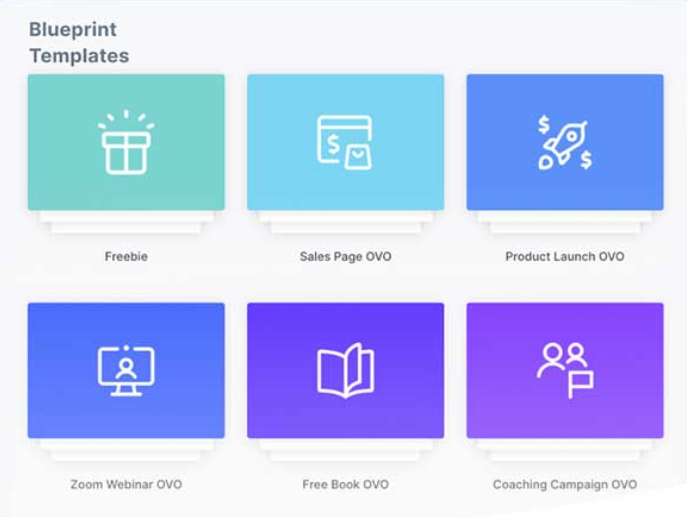
Like LearnWorlds, Kajabi has the option to turn your course into a branded app (with an additional cost). Unlike LearnWorlds, Kajabi comes with an app included on every plan–this is Kajabi’s flagship course app.
Kajabi has some simple community features. But like LearnWorlds, it’s not strong for live experiences and member engagement. It does have a community platform, but because it acquired another company to get it; the livestreaming and discussions are on a separate platform and require a separate app. Unlike Mighty Networks, there’s no native livestreaming or events on the course platform.
How it compares to LearnWorlds
Similar features with better marketing tool and funnels
Kajabi pricing
Kickstarter - $69/mo
Basic - $149/mo
Growth - $199/mo
Pro - $399/mo
4. WizIQ
Best institutional virtual classroom and LMS software
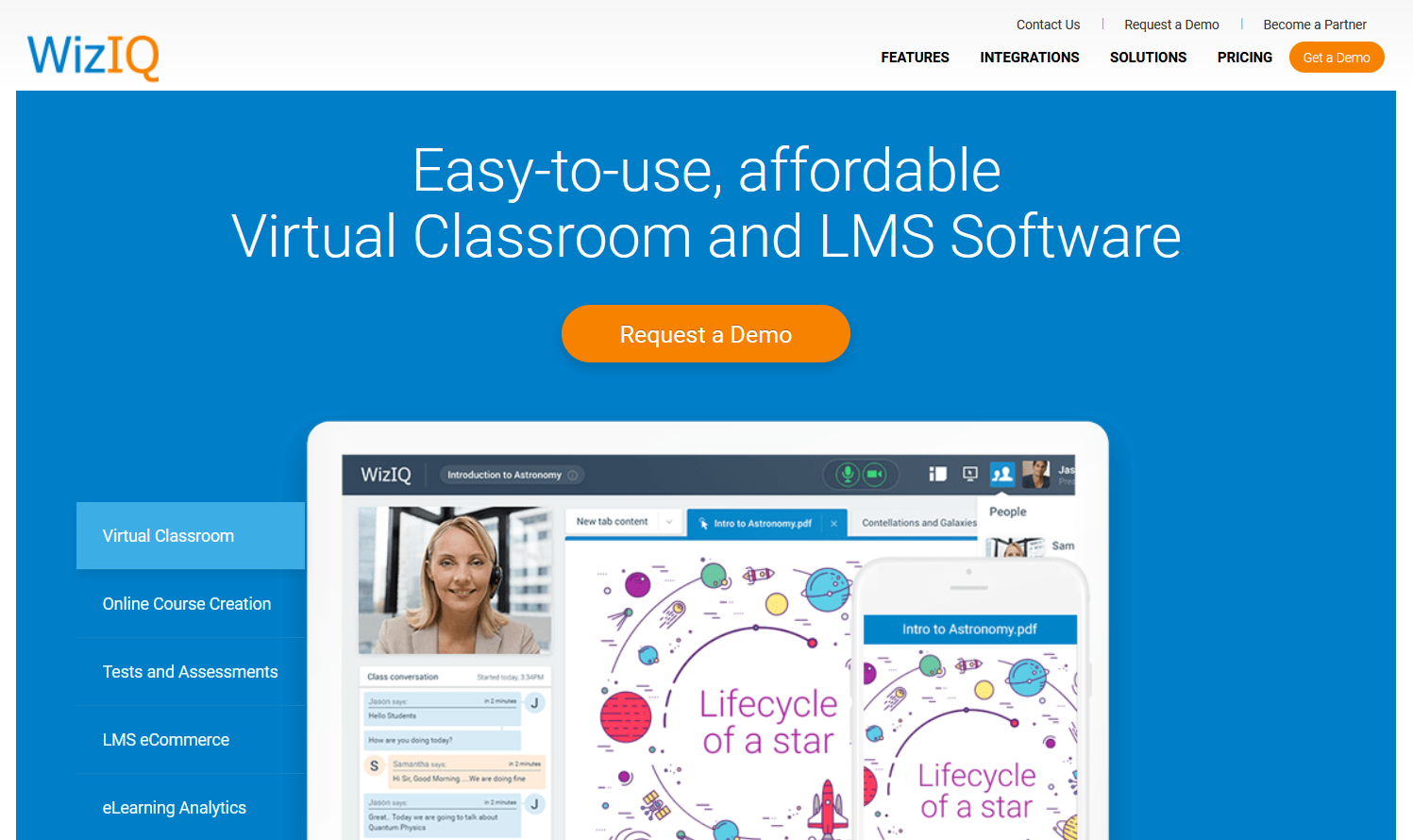
Like LearnWorlds, WizIQ has SCORM compliant authoring and asynchronous as well as synchronous courses. Unlike the others on this list, WizIQ is strongest for institutional learning, supporting many K-12, higher ed, and corporate uses.
Live courses work with native HD livestreaming and real-time whiteboard, polls, messaging. Or, you can deliver asynchronous courses with any kind of content and assessments. WizIQ also comes with analytics to track student’s learning journeys. WizIQ’s best feature is its exam-builder, which can build 9 types of assessments, have custom rules and flows, and can be randomized and timed.
While it's commonly used for institutional learning, WizIQ can support ecommerce and it has a payment gateway built-in. There is some branding potential with logos and colors, but the platform feels a bit corporate overall.
WizIQ has the option to add white-label course apps, with in-app chats and notifications.
How it compares to LearnWorlds
Better functionality for institutional learning, with SCORM compliance, but also more integration choices for e-learning authoring (Blackboard, Moodle, etc.)
WizIQ pricing
Not publicly available
5. Thinkific
Good LearnWorlds alternative
As a 1:1 comparison, Thinkific offers a lot of the same features as LearnWorlds for creating and marketing online courses, but for a lower price. Best features include a user-friendly drag-and-drop website builder with customizable templates. The course-building tools are simple to use, with templates to start from, drag-and-drop course building, and bulk imports. Courses can include text, videos, PDFs, images, and audio for courses, and Thinkific has great assessment features like AI-generated quizzes, assignments, and tests.
Thinkific also has live learning and webinar functionality, although it doesn’t have built-in livestreaming. You can embed links from third-party streaming platforms like YouTube, or use Zoom.
Thinkific lines up with LearnWorlds on several other features too, with a basic community option for discussions, and an email tool that you can use to build sequences and automate sending. But when it comes to pricing, Thinkific is competitive, even offering a Basic Tier with limited functionality for those just starting out at $49/mo.
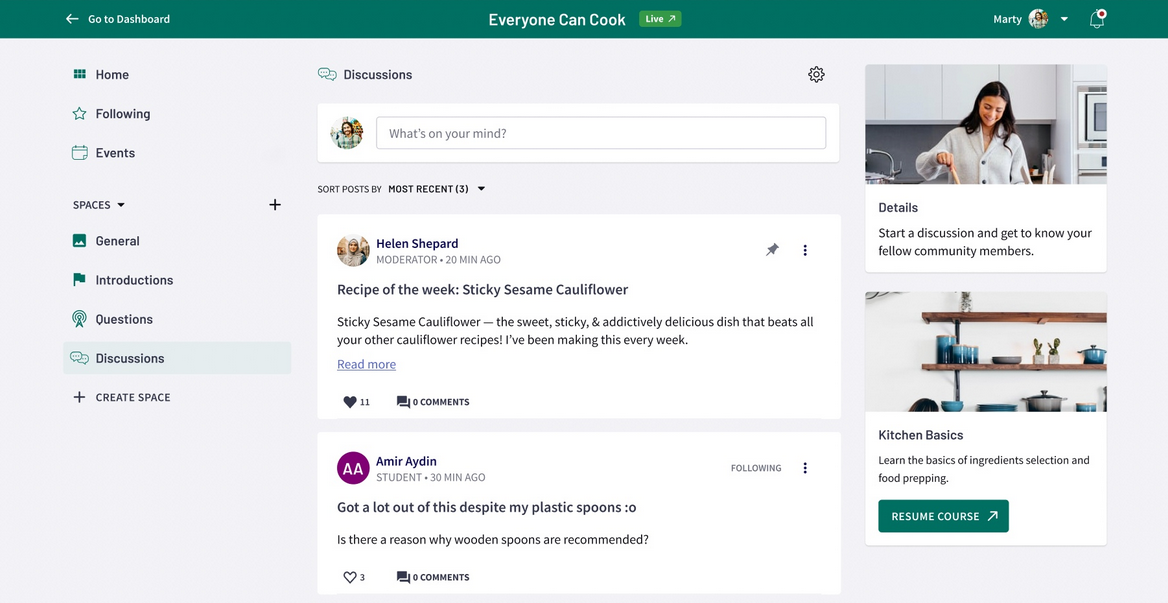
However, Thinkific has some serious limitations in its engagement features. While it does include an online community option, it's essentially a basic forum lacking real community-building tools. And while Thinkific does come with an app for every plan, its reviews are terrible–users report frequent glitches, crashes, and UI limitations for both the Apple and Android app.
How it compares to LearnWorlds
The features aren’t as good, but it is a comparable platform at a potentially lower price.
Thinkific pricing
$49/mo - Basic
$99/mo - Start
$199/mo - Grow
6. Udemy
Best course marketplace
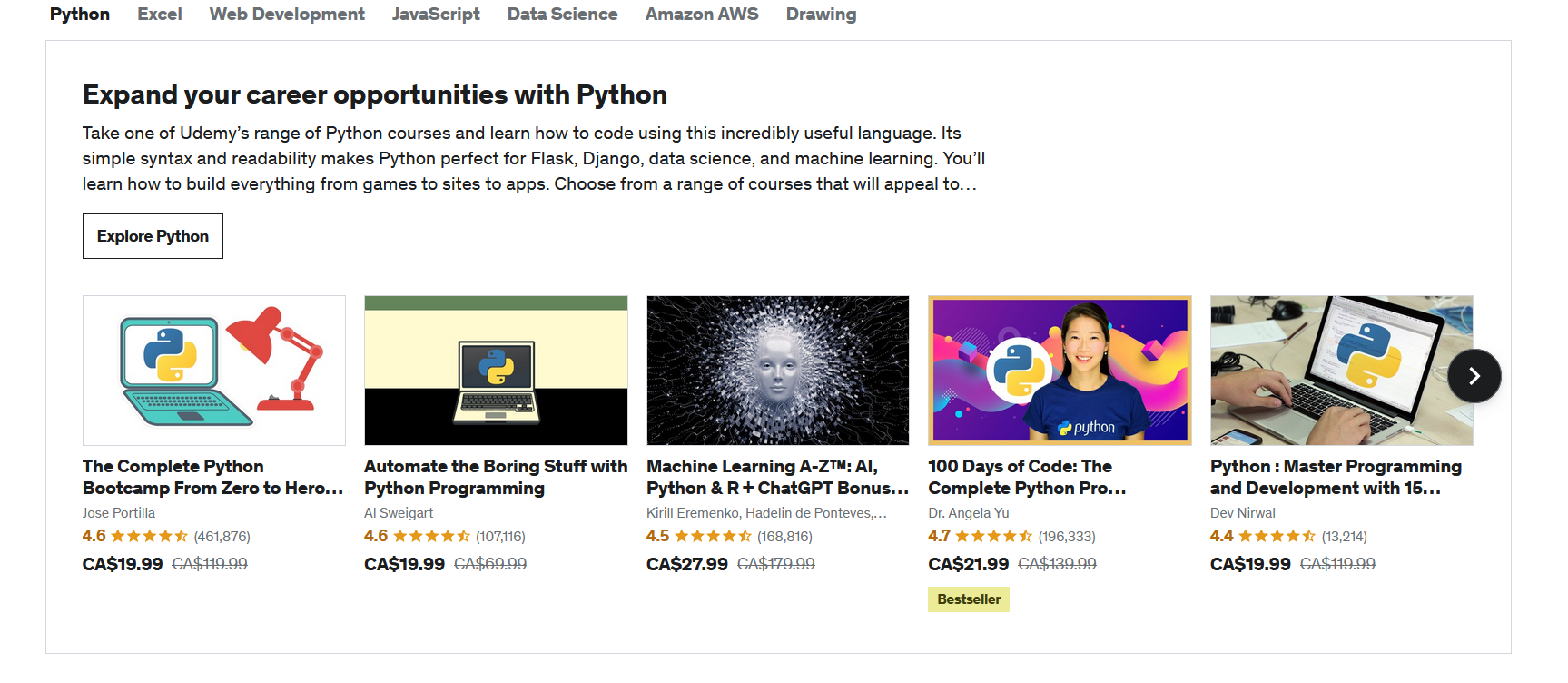
A course marketplace is a site that hosts online courses, and it might be a LearnWorlds alternative for those who like this business model. Udemy provides a course platform and hosting in exchange for a cut of revenue.
There are pros and cons to hosting your course on a marketplace like Udemy:
Pros
Udemy brings a lot of students to the platform with millions of monthly users looking for courses.
Udemy takes care of course hosting, support, billing, and the other admin things required in running a course business.
Cons
Udemy takes a cut of your revenue: 63% of the revenue from students it sends to you or 3% of revenue from students you bring yourself. This cut might be worth it if it means students you wouldn’t otherwise have (you decide).
You don’t grow your course audience or business. The customers are Udemy’s customers.

While course marketplaces have their drawbacks, Udemy is one of the better ones. That’s because it lets creators keep more–including an actual cut of course sales. Other platforms compensate with a percentage based on watch time (although Udemy’s monthly membership plans do this too).
Udemy also has fantastic apps for every device, good name recognition, and an easy-to-use course builder.
How it compares to LearnWorlds
A course marketplace means existing potential students and more exposure.
Udemy has great apps included for students to learn on.
Udemy Pricing
No up-front cost, but Udemy takes either a 63% or 3% cut of all your sales.
7. Podia
Good website builder with course functions

Podia is a bit of a mixed bag. It started as a digital product platform with a website-builder attached, but pivoted to be a website builder with courses and products attached. This means that the website builder is actually its best features, and it’s worked hard to replicate the features of builders like Wix and Squarespace - with drag-and-drop building, hosting, templates, and fairly complex website options.
Then, Podia has the option to integrate e-commerce into a website, specifically to sell a course or coaching. A digital storefront on Podia is easy to navigate. The e-commerce functions are simple, and you can sell online courses, webinars, memberships, or digital downloads. And Podia offers 24/7 support.
Podia has also included marketing tools that compare with LearnWorlds’, most notably its email tool which comes with templates, a custom designer, forms, segmentation, and automations.
Podia is not strong for live instruction, communities, events, or other synchronous education experiences. It's best for websites and async courses. If you are planning to use Podia to sell digital products, watch for the transaction fees. Although a “free” plan sounds great, it comes with 10% transaction fees! That means if you make $1,000, Podia will take $100. Many new creators learn the hard way that this can eat into your revenue.
How it compares to LearnWorlds
Better website designer with more templates and customization
Better email software with templates, analytics, and segmentation
Similarly weak on live and asynchronous learning experiences
Podia pricing
“Free” plan - 10% transaction fee
Mover - $39/mo + 5% transaction fees
Shaker - $89/mo
8. LearnDash
Best WordPress-based alternative
WordPress doesn't have the same dominance as it once did, but it is still the majority CMS. 43% of websites are still using WordPress. And LearnWorlds has a WordPress plugin.
If you are trying to integrate an online course with a WordPress site, you don't need to build with a WordPress plugin. It's easy to use most of the options on this list as a subdomain on a WordPress site.
But if you are determined to add an online course with a WordPress plugin, LearnDash is one of the better alternatives to LearnWorlds.
It comes with a learning management system that feels a lot like wordpress's Gutenberg editor, and will be familiar to wordpress users. You can build lessons, modules, and tables of content for courses. And the back end gives you customization options for dripping content, managing course enrollment, and running assessments.
The downside to using a WordPress plugin is that customization features are limited. Most WordPress users end up needing child themes and custom coding to get the look they want for an online course. And WordPress plugins can be clunky when interacting with your existing website.
LearnDash is good for a basic course, but it is nowhere near as powerful as the other course platforms on this list or LearnWorlds itself. And while LearnDash isn't expensive, it can only be deployed with other software that costs money–like WordPress hosting and a payment gateway.
How LearnDash compares to LearnWorlds
Alternative WordPress plugin with Gutenburg-like feel and customization options.
LearnDash pricing
$199/year
9. Maven
Best marketplace for cohort courses
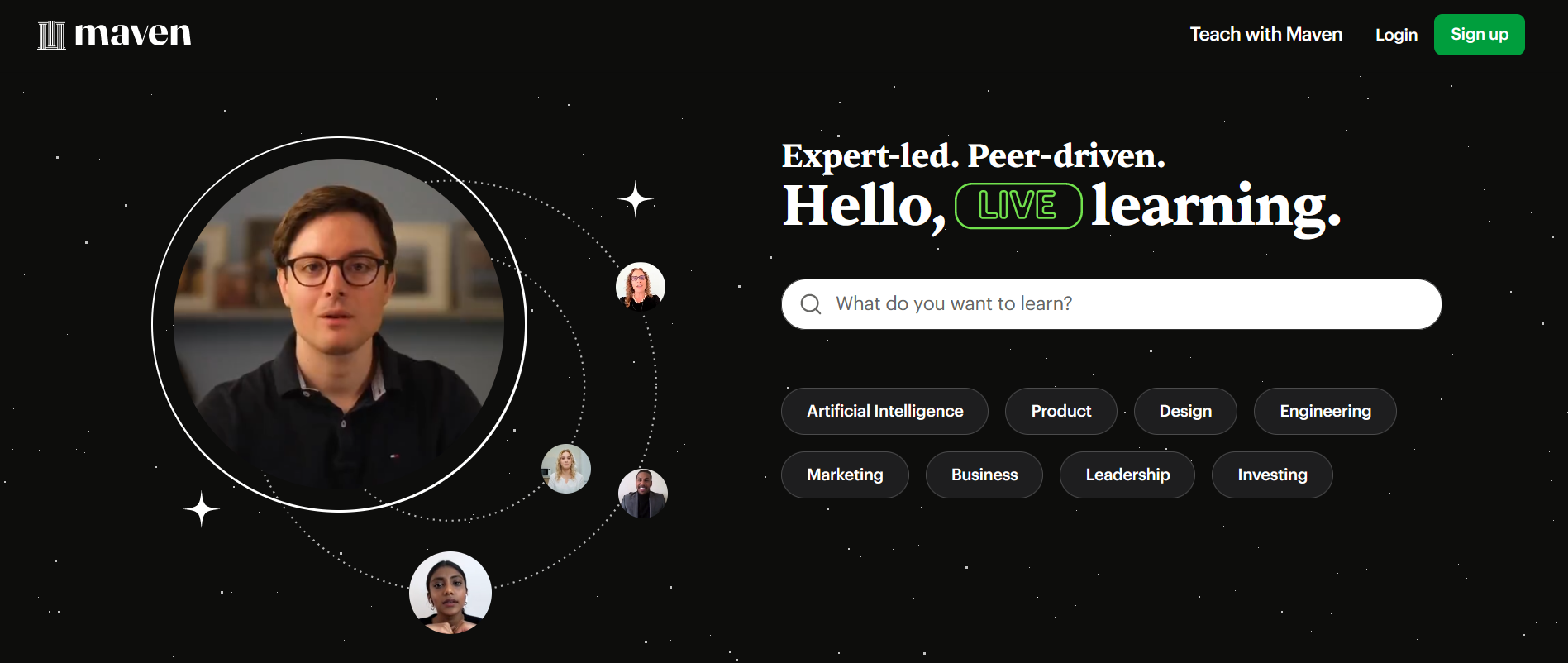
Maven is a new online course platform that focuses exclusively on live, virtual courses that are taught by experts. It works like a marketplace; students can browse upcoming courses and sign up, then tune in for the course as it’s happening. Since most online course marketplaces are built around asynchronous learning, Maven is a cool alternative for live learning.
Cohort courses often command a higher premium, and the fact that Maven hand-selects industry experts as teachers makes for a great learning experience.
Teachers on Maven get support in planning and building their course, and Maven helps with marketing and finding students. And Maven keeps 10% of the revenue you earn. This is a pretty good deal considering Maven takes care of marketing, support, training, and hosting (consider that Thinkific takes a 10% for only hosting).
There are a couple things to know before choosing Maven as a LearnWorlds alternative.
Maven is a marketplace. This means they own your students and you’re building their brand.
You need to be selected by Maven to teach on its platform–it’s not open to everyone.
How Maven compares to LearnWorlds
Maven focuses on live learning in a marketplace setting, while LearnWorlds is best at hosting asynchronous courses. Maven helps with sales, marketing, and course-building, but they own your students.
Maven pricing
Maven keeps 10% of your revenue
10. Teachable
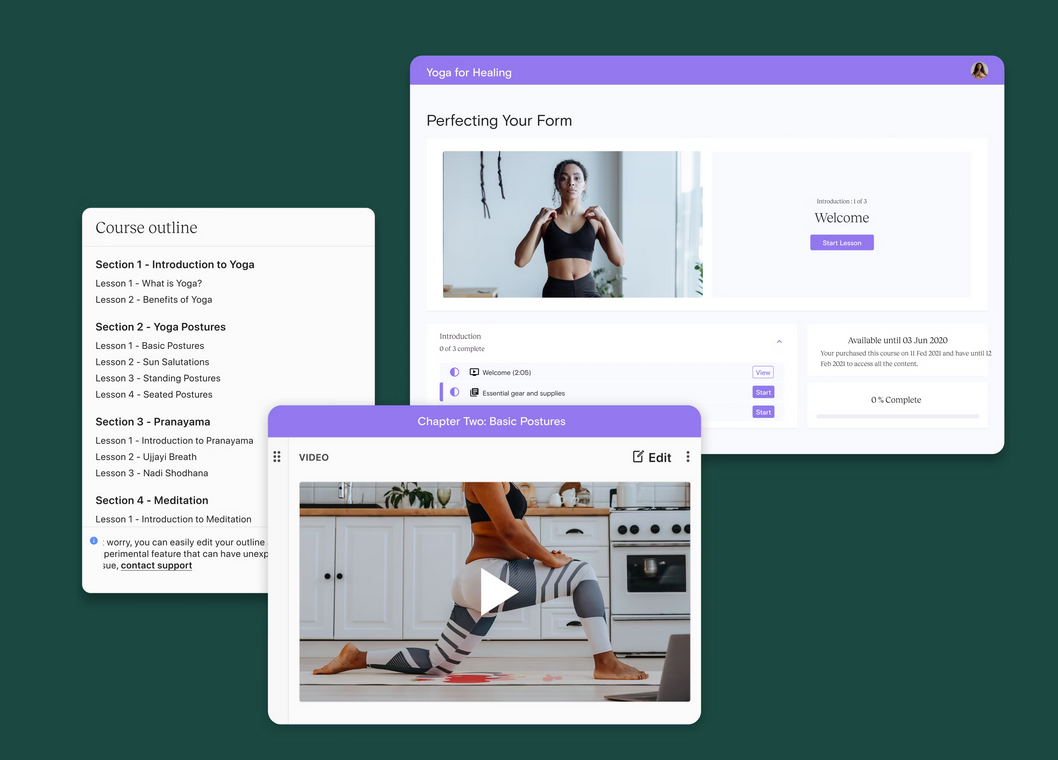
Teachable and LearnWorlds actually have a lot in common. Teachable boasts a similar drag-and-drop website and landing-page builder with templates to choose from. These integrate into an email and help sell courses.
Teachable’s focus is also pre-recorded courses, with a built-in “power editor” for building video content. The course platform is great for asynchronous course building, with options to add different kinds of content and quizzes. Teachable has been adding more ways to earn from what you know, with the options to run coaching programs and host live meetings.
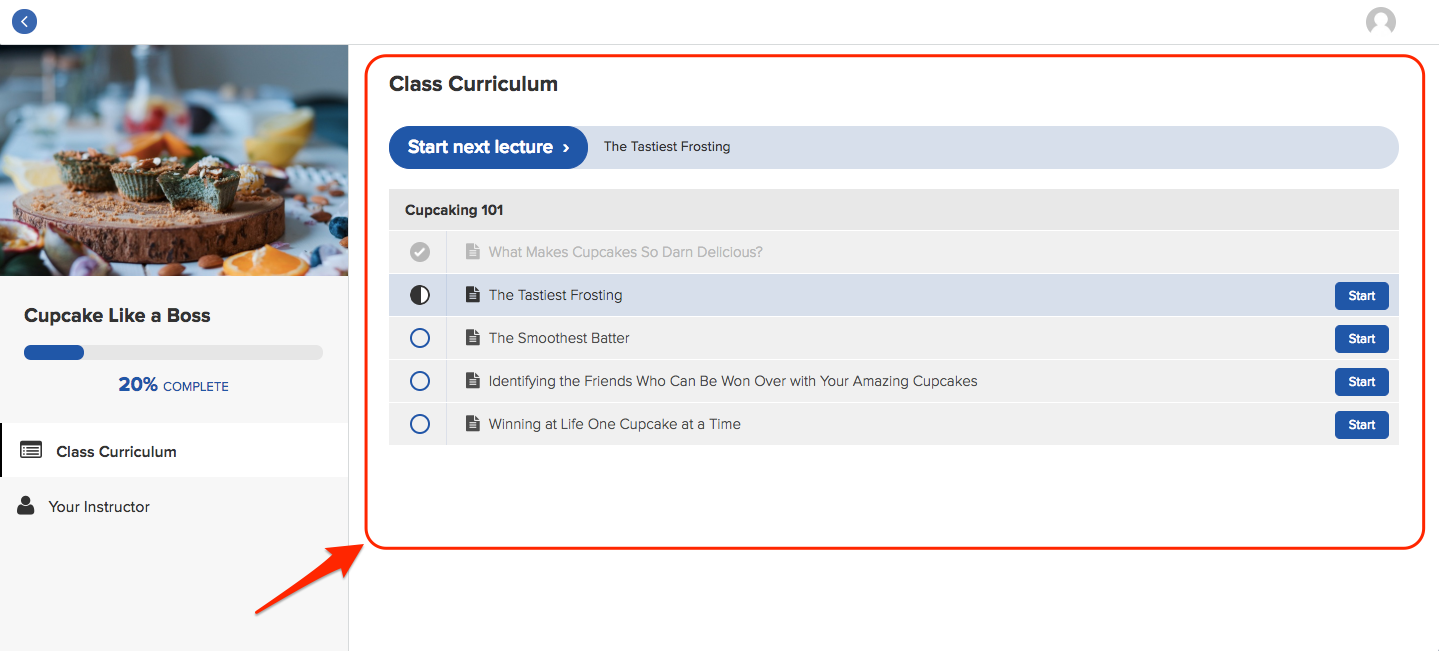
Teachable has good analytics and–a cool standout feature–you can also pay Teachers working for you (if relevant), a step up from LearnWorld’s limited admin options.
However, Teachable has some of the same weaknesses as LearnWorlds. The option to run memberships and communities is extremely basic. And Teachable comes with an app for every plan, but unfortunately it’s iOS only–students who use Android can’t access your course on mobile.
How Teachable compares to LearnWorlds
They have similar features, but LearnWorlds is a stronger LMS while Teachable comes with an app included–but it’s only for iOS.
Teachable pricing
“Free” - 1$/transaction + 10% transaction fee
Basic - $39/mo + 5% transaction fee
Pro - $119/mo
Pro+ - $199/mo
11. Moodle
Best alternative institutional learning platform

For institutional clients looking for online learning platforms, Moodle is a fantastic option. It’s an open-source, online LMS that can be used for building lots of different course content with quizzes, peer-assessments, essays, and grading integration. Moodle is extremely customizable, and can fit a lot of institutional use cases.
Moodle includes discussion forums, group projects and collaboration, P2P learning, messaging, and announcements–all features which can make for great course engagement. And it comes with customizable themes and dashboards with API support for integrations and apps.
The downside to Moodle is the complexity. Most institutions that use it have IT staff in-house to customize it and connect it to existing software. And most institutions also add third-party plugins to get the complete set of features they need. But there’s no question Moodle is a powerful LMS and a great option for institutional clients.
How Moodle compares to LearnWorlds
An institutional LMS that’s both open source and more powerful than LearnWorlds, that can be customized for many institutional uses.
Moodle pricing
Open source
Conclusion
In the end, the best LearnWorlds alternative will depend on what you need and how you dream about delivering a course.
If you want to see course engagement and completions go through the roof, come teach on Mighty! Mighty’s unmatched engagement features for live learning and community-building bring out the best in students. You can try it free for 14 days (without a credit card).
Ready to start building your community?
Start a free 14-day trial to explore Mighty—no credit card required.
More like this
Join Mighty Community
Learn the principles of Community Design™ (and see them in action) alongside thousands of creators and entrepreneurs. It's free to join!

Online Courses
Creating a Course
Teaching a Course
Course Platforms
Selling a Course
Communities & Memberships
Community Platforms
Managing a Community
Building a Community
Growing a Community
Monetizing a Community
Content Creation
Creators & Entrepreneurs
Monetization
Content Creation
Starting a Business
Website Builders
Creating & Managing a Website
Events
Event Platforms
Hosting & Marketing Events
Branded Apps
Creating a Mobile App
Coaching Apps
Community Apps
Coaching
Mastermind Groups
Starting a Coaching Business
Coaching Platforms
Filter by Category
Online Courses
Communities & Memberships
Creators & Entrepreneurs
Events
Branded Apps
Coaching
Start your free trial
14 Days. No Credit Card Required.

















